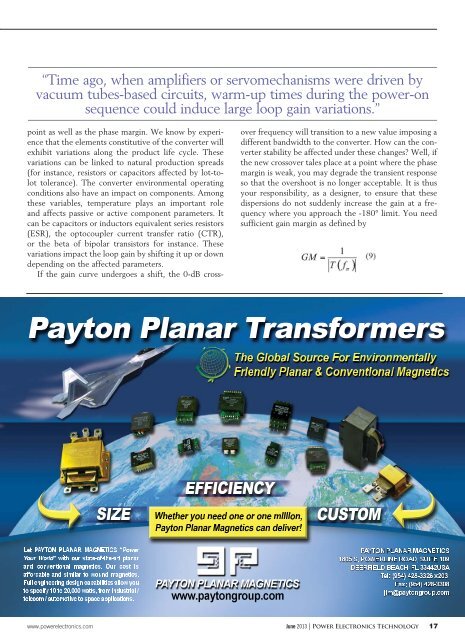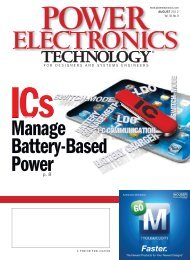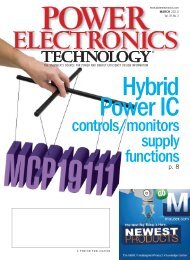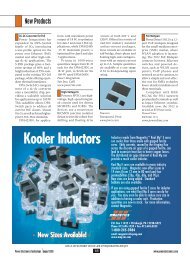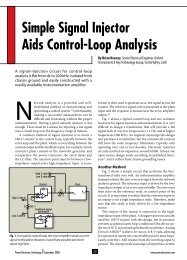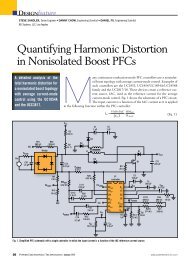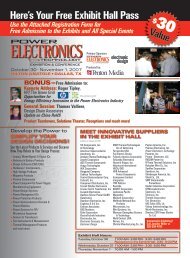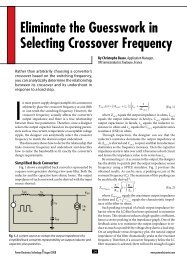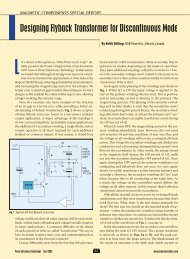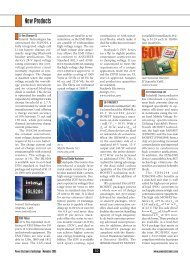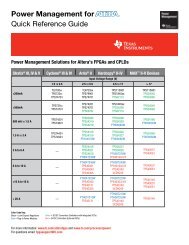Power Electronics Technology
Power Electronics Technology
Power Electronics Technology
You also want an ePaper? Increase the reach of your titles
YUMPU automatically turns print PDFs into web optimized ePapers that Google loves.
“Time ago, when amplifiers or servomechanisms were driven by<br />
vacuum tubes-based circuits, warm-up times during the power-on<br />
sequence could induce large loop gain variations.”<br />
point as well as the phase margin. We know by experience<br />
that the elements constitutive of the converter will<br />
exhibit variations along the product life cycle. These<br />
variations can be linked to natural production spreads<br />
(for instance, resistors or capacitors affected by lot-tolot<br />
tolerance). The converter environmental operating<br />
conditions also have an impact on components. Among<br />
these variables, temperature plays an important role<br />
and affects passive or active component parameters. It<br />
can be capacitors or inductors equivalent series resistors<br />
(ESR), the optocoupler current transfer ratio (CTR),<br />
or the beta of bipolar transistors for instance. These<br />
variations impact the loop gain by shifting it up or down<br />
depending on the affected parameters.<br />
If the gain curve undergoes a shift, the 0-dB cross-<br />
over frequency will transition to a new value imposing a<br />
different bandwidth to the converter. How can the converter<br />
stability be affected under these changes? Well, if<br />
the new crossover tales place at a point where the phase<br />
margin is weak, you may degrade the transient response<br />
so that the overshoot is no longer acceptable. It is thus<br />
your responsibility, as a designer, to ensure that these<br />
dispersions do not suddenly increase the gain at a frequency<br />
where you approach the -180° limit. You need<br />
sufficient gain margin as defined by<br />
www.powerelectronics.com June 2013 | <strong>Power</strong> <strong>Electronics</strong> <strong>Technology</strong> 17


